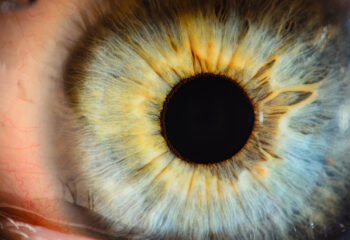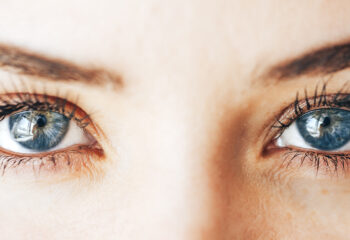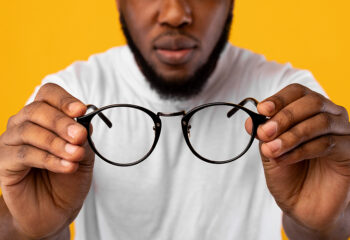If you have been diagnosed with Diabetic retinopathy (DR), you’re not alone. DR is a common complication of both type 1 and type 2 diabetes and a major cause of vision loss in adults of all ages in the United States and throughout the world. One-third of the people with diabetes have DR, that translates to an astonishing 95 million patients with diabetic eye disease worldwide.
How long does it take for diabetes to damage eyes?
Studies done in the United States have shown that patients with diabetes typically develop some form of DR within 10 years of diagnosis. While some forms of DR are quite mild, one-third of patients will develop vision-threatening retinopathy.
Diabetic eye disease is caused by damage to the blood vessels and neurons in your retina, the light-sensitive tissue of your eye. It is a progressive condition, meaning the longer you have diabetes and the higher your blood sugar, the more likely you are to develop this eye complication.
What is the first sign of diabetic retinopathy?
In the early stages, DR may not cause any symptoms or only mild changes in vision. Nevertheless, even at these early stages, there is damage to nerve cells and blood vessels that your doctor would be able to see during a retinal examination. It is important to catch DR in its early stages before it progresses to the more advanced stages that threaten eyesight.
At any stage of DR there could also be changes that lead to fluid accumulation, also known as edema, in the retina. If fluid accumulates in the macula, or the central area of the retina which provides your sharpest vision, the vision may become severely compromised.
How can you tell if diabetes is affecting your eyes?
If you have diabetes, some of the symptoms that may indicate retinopathy include intermittently blurry vision, new floaters, and dark or blurry areas in your vision. Because diabetes affects your whole body, these symptoms usually affect both eyes.

Man with black eye glasses having difficult time trying to read book.
Who should get screened for diabetic retinopathy?
Patients with type 1 diabetes should have yearly eye examinations to screen for DR starting five years after their diabetes diagnosis. Patients with type 2 diabetes should be screened starting the year of their diagnosis.
Women who develop gestational diabetes do not require an eye exam during pregnancy because studies currently indicate that they do not have an increased risk of developing DR. However, women with diabetes who become pregnant should be examined early in the course of the pregnancy. Timely detection can help control the disease before it can damage your vision. All patients diagnosed with DR should be referred to an ophthalmologist, or more specifically a retinal specialist, to help manage the visual complications of diabetes.
Can lowering blood sugar improve vision?
Two of the most important steps you can take to preserving your vision are lowering your blood sugar and controlling high blood pressure. In fact, good sugar control can often slow the progression of mild to moderate retinopathy. Your doctors can also assist by monitoring and helping you control your glycosylated hemoglobin levels (A1C), serum lipids, and blood pressure.
Is diabetic eye disease reversible?
If you have diabetes and develop any changes in your vision, you should contact your ophthalmologist immediately. While we currently do not have therapies that can completely reverse diabetic retinopathy, we have effective treatments that can slow down or stop its progression and prevent your vision from deteriorating further. In some cases, therapies are effective at recovering some lost vision.
Written by:
Luis Martinez-Velazquez, MD, PhD will be starting his ophthalmology residency at Massachusetts Eye and Ear Infirmary.
Yasha Modi, MD is an Assistant Professor of Ophthalmology at New York University specializing in vitreoretinal surgery, retinal disease, and uveitis.







